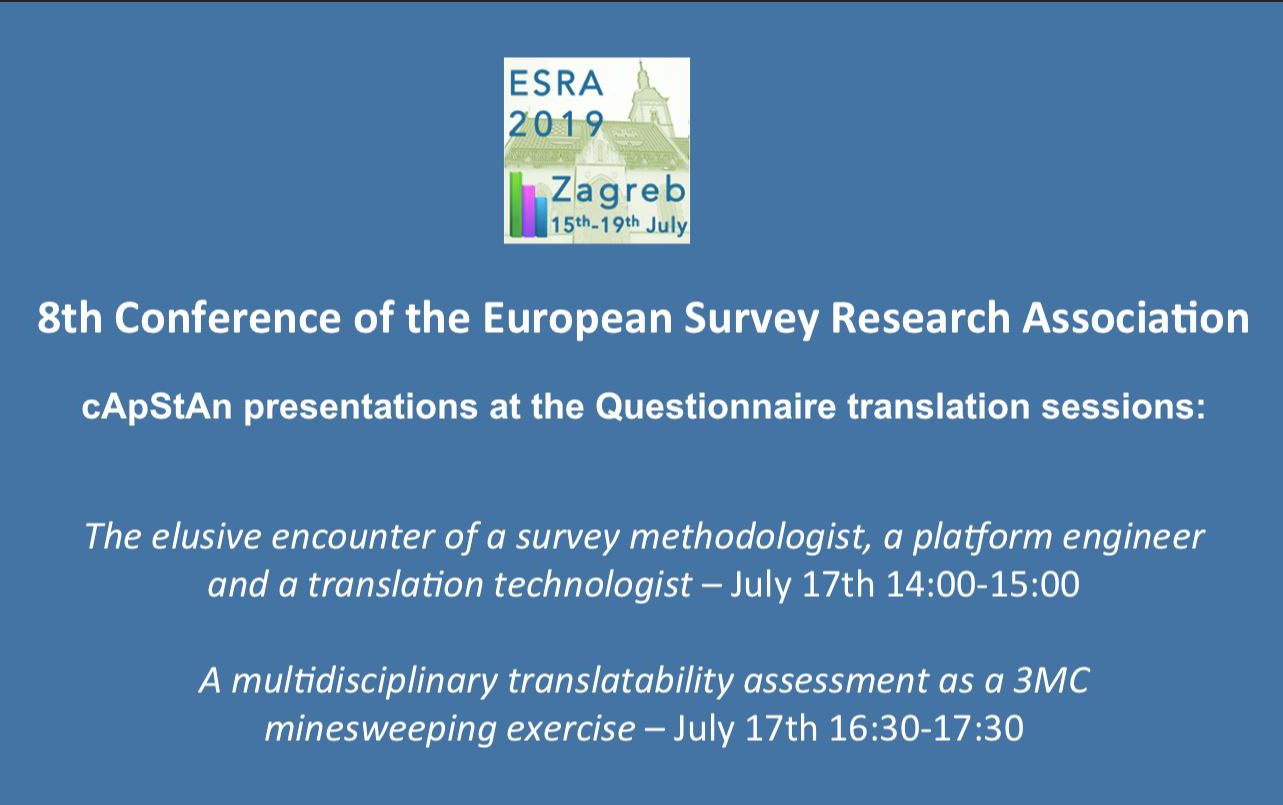
Meet us at ESRA 2019 at the Questionnaire translation sessions on Wednesday 17 July
by Pisana Ferrari – cApStAn Ambassador to the Global Village
If you are attending the 8th Conference of the European Survey Research Association, ESRA, taking place in Zagreb, July 15-19, do take the time to visit our booth: meet cApStAn CEO Steve Dept and questionnaire adaptation specialist Elica Krajčeva. Both are field practitioners, and at this edition of the Conference they will present components of work that has taken place at an early stage, before the actual questionnaire translation and adaptation process began.
In the first paper, titled “The elusive encounter of a survey methodologist, a platform engineer and a translation technologist” (Session: Questionnaire translation: achievements and new challenges ahead 2, on July 17, 14:00-15:00), the authors suggest that a closer dialogue between survey methodologists, who advocate and implement best practice; translation technologists, who use and apply new tools; and platform engineers, who have designed and streamlined new questionnaire administration systems, is increasingly necessary. They examine workflows that allow for a better integration of needs and requirements from all three sides, without increasing the overall translation costs or compromising translation quality.
In the second paper, titled “A multidisciplinary translatability assessment as a 3MC minesweeping exercise” (Session: Questionnaire translation: achievements and new challenges ahead 3, on July 17, 15:00-16:00), the authors explain why and how, in multilingual assessments, embedding translation and adaptation in the questionnaire design greatly benefits the comparability of results. One particularly effective combination is cognitive pre-testing and translatability assessment, followed by a consolidation exercise involving the questionnaire authors, researchers and interviewers analyzing outcomes from cognitive labs, and cultural brokers, in this case linguists and domain specialists from selected target cultures. This model has already been applied successfully in ILSAs such as PISA and PIAAC, in attitudinal studies such as Pew Research Center’s Global Attitudes Project, and in European surveys such as the European Quality of Life Survey and the European Company Survey. A relatively small investment with immense minesweeping benefits in terms of the portability and adaptability of constructs.